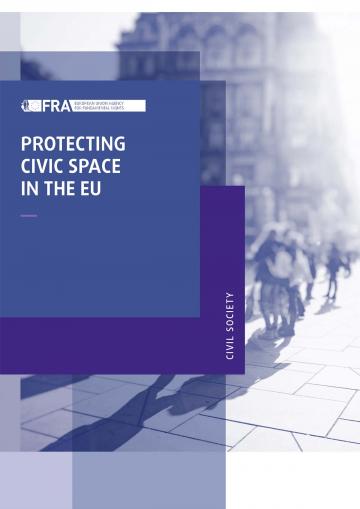The European Commission should include reference to attacks against human rights defenders in its reporting under the Framework Decision on combating certain forms and expressions of racism and xenophobia, when monitoring and assessing EU rules and tools to protect the rights of victims of crime, and when revising EU provisions on combating hate speech and hate crime.
The European Commission should ensure that its upcoming initiative on SLAPPs offers effective protection to CSOs and human rights defenders against legal harassment. Such protection could include uniform procedural safeguards against abusive lawsuits, provisions precluding libel tourism and forum shopping, and the obligation to provide assistance and support to victims of SLAPPs. The European Commission and Member States should use their respective means to raise awareness among justice authorities and practitioners of the negative impact of SLAPP practices.
Building on the example of the existing external EU human rights defenders mechanism protectdefenders.eu, the EU could consider providing appropriate financial support for the creation and maintenance of a similar monitoring mechanism in the EU, allowing CSOs and human rights defenders to report attacks, register alerts, map trends and provide timely and targeted support to victims.
Member States should ensure that crimes committed against CSOs and human rights defenders are properly recorded, investigated and prosecuted, including under applicable hate crime provisions where relevant. Politicians and policymakers could contribute to developing a positive narrative about civil society and highlight its important role, avoiding statements that could fuel hostility towards CSOs and human rights defenders and have a chilling effect on their human rights work.
Member States should refrain from criminalising or taking similar legal actions that hamper the operation of CSOs in the context of humanitarian assistance for asylum seekers and other migrants and during search and rescue at sea.
